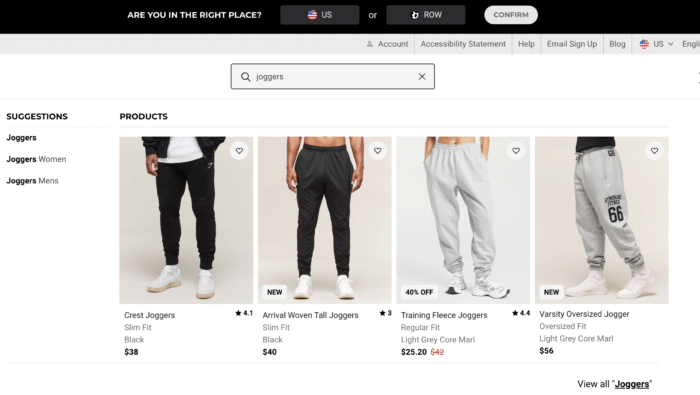E-commerce Search to Boost Sales: Predictive vs. Semantic

In today’s digital market, E-commerce Search is no longer just a feature—it is a necessity for online success.
Why E-commerce Search is Crucial for Online Stores
In a world where customer experience is paramount, search functionality has become an indispensable element in e-commerce. In the United States, 87% of online shoppers research products on e-commerce sites before buying, either online or in-store. Similarly, 81% of Indian consumers browse e-commerce platforms to research before making a final purchase, even from physical stores.
This data highlights the central role of the search bar, which is often the first interaction users have with an online store. Therefore, an ineffective search can quickly alienate a user, negatively influencing their purchasing decision, whether online or even in physical stores.
To address this challenge, two technologies have been developed that have been gaining increasing prominence in the e-commerce world:
Predictive Search and Semantic Search. These solutions not only improve the accuracy and relevance of results but also create a more intuitive and personalized shopping experience.
Relative Read: What is e-commerce? How to create an E-commerce Website?
Predictive Search: Speed Up E-commerce Search in Real Time
What is Predictive Search?
But what is Predictive Search? Predictive Search anticipates what users are searching for as they type, offering real-time suggestions and completing terms to speed up the entire search process. This feature uses data from previous searches, popular terms, and the text the user enters to suggest relevant results. See some real-world examples below:
1. Real-Time Suggestions

Shopify’s predictive search, for example, provides instant suggestions as soon as users start typing. When typing “sneakers,” options like “Women’s sneakers” or “Nike sneakers” might appear.
2. Relevance Ranking

The system not only offers suggestions but also ranks them based on popularity or previous searches. For example, if “red shoes” are a popular product, it will most likely be shown first.
3. Autocomplete
Predictive search not only completes sentences but also corrects spelling errors. For example, when typing “headphones,” the system can automatically suggest “headphones.” This feature makes searching easier by allowing shoppers to quickly select the correct recommendation from the list, instead of typing the entire word again.
Semantic Search: Understanding User Intent in E-commerce
What is Semantic Search, and how does it work?
This type of search analyzes the context of the words entered, providing more accurate and relevant results. Semantic search goes beyond the words themselves, considering the underlying meaning of the query and allowing for a deeper understanding of the user’s intent.
For example, when a user searches for “strap dress,” the system can identify that they’re looking for a strapless dress. In contrast, when they search for “dress strap,” the focus shifts to the straps. This ability to differentiate between different intents makes semantic search especially effective.
To help you understand better, we’ll share another example. When a user searches, for example, for “Taylor Swift concert outfit,” the system can suggest options like sequined dresses or concert-appropriate outfits. This approach doesn’t limit itself to word order, but also to the context and meaning of each combination. As a result, the search experience becomes more intuitive and enjoyable, increasing customer satisfaction and facilitating the discovery of products that might otherwise go unnoticed.
Also Read: Social Media Vs Website for your business
Predictive Search vs. Semantic Search: Key Differences
While both Predictive Search and Semantic Search improve the search experience, they do so in different ways:
- Predictive Search: Focuses on predicting and completing search terms in real time, making the process faster and more fluid.
- Semantic Search: Focuses on understanding the intent behind the search, providing more accurate and contextualized results, even if the keywords don’t directly match.
Why E-commerce Search is Essential for Your Shopify Store?
- Optimizing the shopping experience: Quickly connects users with what they’re looking for, reducing search time and improving the overall shopping experience.
- Product discovery: They can find products even if their searches are vague or complex.
- Higher conversion rates: Users are more likely to find and purchase the products that best meet their needs.
Final Thoughts: Transforming Customer Experience with E-commerce Search
For retailers, offering a high-quality search experience is not only optional but essential to maintaining a competitive advantage in e-commerce. Predictive search helps customers find products faster by offering real-time suggestions, while semantic search improves the accuracy and relevance of results. Together, these two technologies can transform the consumer purchasing journey, increase conversion rates, and reduce cart abandonment rates.

Leave a Reply